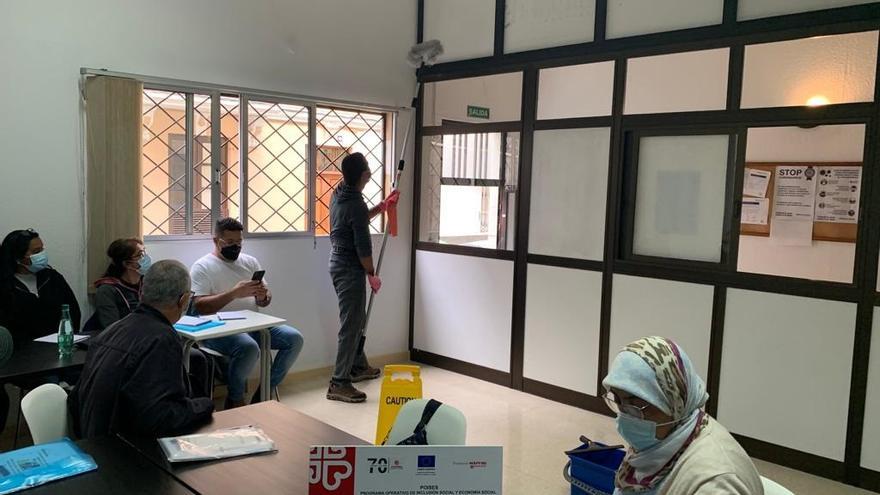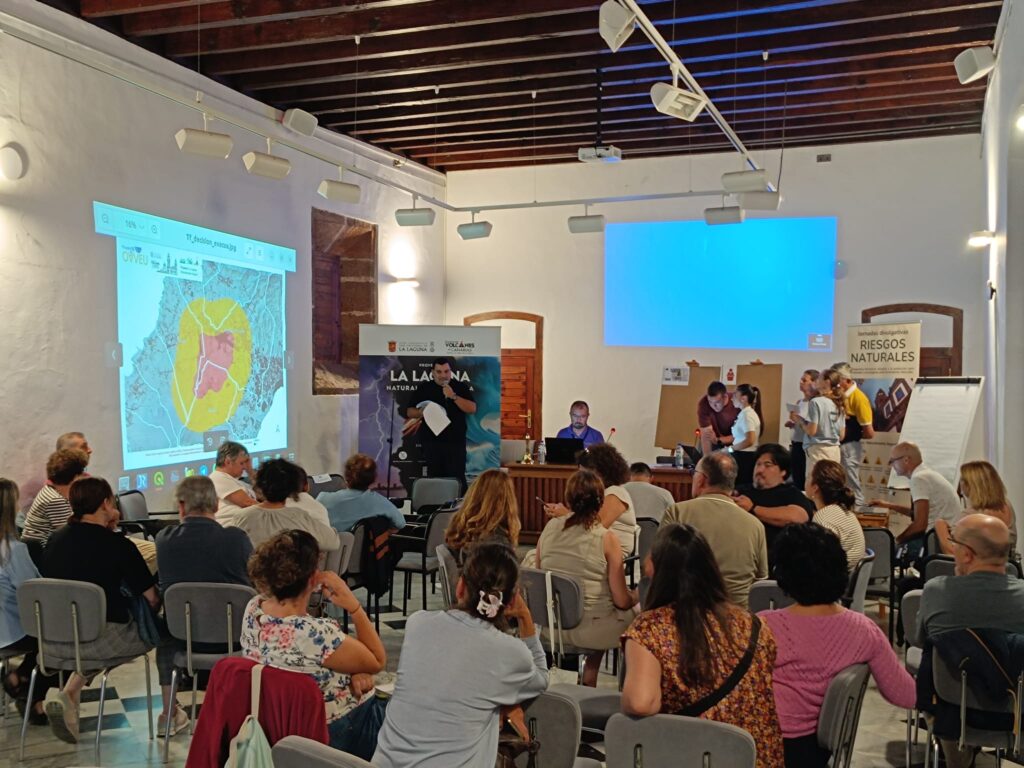
Diocesan Caritas of Tenerifewith the support of the Mapfre Guanarteme Foundation and the European Union’s Social Inclusion and Social Economy Operational Program (POISES), have facilitated the job placement of 130 people on the islands of Tenerife and La Palma, within the framework of the Project ‘Mila’ for people in situations of social vulnerability.
Specifically, this year a total of eight professional training courses have been carried out; of them, six in Tenerife and two in La Palma. The training itineraries developed by the diocesan entity have been those of cleaning and disinfection operator, specialty glass cleaning with pole; waiter / ironing; preparation for level 2 skills, and social and health care for dependent people in social institutions.
The purpose of the ‘Mila’ Project is to improve the employability of people who are in a situation of social vulnerability, putting into practice a methodology based on the prominence of each participating person, which is reflected in a Personalized Insertion Itinerary (IPI).
In this edition, which has just ended, it has been possible to implement individual and group actions with people, launching experimental actions such as Employment Training Groups, which seek to promote autonomy and empowerment of people in small groups, where an environment of trust has been generated that made it easier for people to share their experiences regarding their job search process, practicing digital skills in the process through which they have also been able to expand information and reinforce the management of different tools, which are currently necessary to stay active in the job search.
In total, between Tenerife and La Palma, a total of 406 people have been treated, most of whom were referred from the archpriestal Cáritas of the areas in which the project operates and from the projects implemented by the diocesan entity. Of these, 289 people participated in the Personalized Insertion Itineraries and 224 people were assisted in mediation sessions, of which 130 people were able to enter the labor market.
One of these people is Nerea (a fictitious name given to preserve her identity), who explains that when Cáritas arrived she did not speak because she felt bad and she did not stop crying: “One day before they took me in I was very scared because I had to stay alone in the street; luckily I managed to get into a doorway”.
Nerea stresses that the next day the parish priest referred her to the social worker of the homeless people’s project in La Palma, where they helped her pay a pension and finally agreed to the ‘Hogar Joel González’ where she currently lives. She then started the key skills course and finally agreed to a job in which she currently continues. “Today I feel good and useful, and in the future I would like to be able to go live alone and continue training,” she concludes.
The profile of participating people with whom the project works represents a challenge in itself, since people in a situation of social vulnerability are accompanied, so that the problems they present on many occasions are not only summarized in the lack of employment, but in a series of conditions and barriers that derive from said situation.
In this sense, the intervention methodology that is implemented from Cáritas Diocesana de Tenerife allows the person to be accompanied not only from the Employment area, but from other projects of the institution, which advise on issues related to the loss of habitual residence, legal advice on immigration matters, etc., so that comprehensive care is offered to the participants.
With each of the itineraries implemented, a continuous accompaniment and follow-up has been carried out on the participants, supervising the different training actions, making periodic visits to the different training centers, implementing personalized orientation tutorials, and analyzing the specific needs of each person. .
In the same way, in addition to the training actions of a professional nature, each itinerary includes non-work practices in companies, as a means of approaching a real work environment. Thus, a total of 32 participating people successfully completed the entire process, which lasted 80 hours.
Last year, a total of 1,558 people participated in the Cáritas Diocesana de Tenerife Employment Program, which presents two lines of action. On the one hand, 916 people were assisted through the insular network project ‘Neighborhoods for Employment: Stronger Together’, while another 642 participated in different Social and Labor Insertion Itineraries. Of the total number of accompanied participants, 587 people received professional and/or complementary training and a total of 443 (28%) achieved integration.
However, actions to improve employability are a transversal axis of all the entity’s programs and projects, understanding that “access to employment is a fundamental element for the personal and family integration of people”.
















